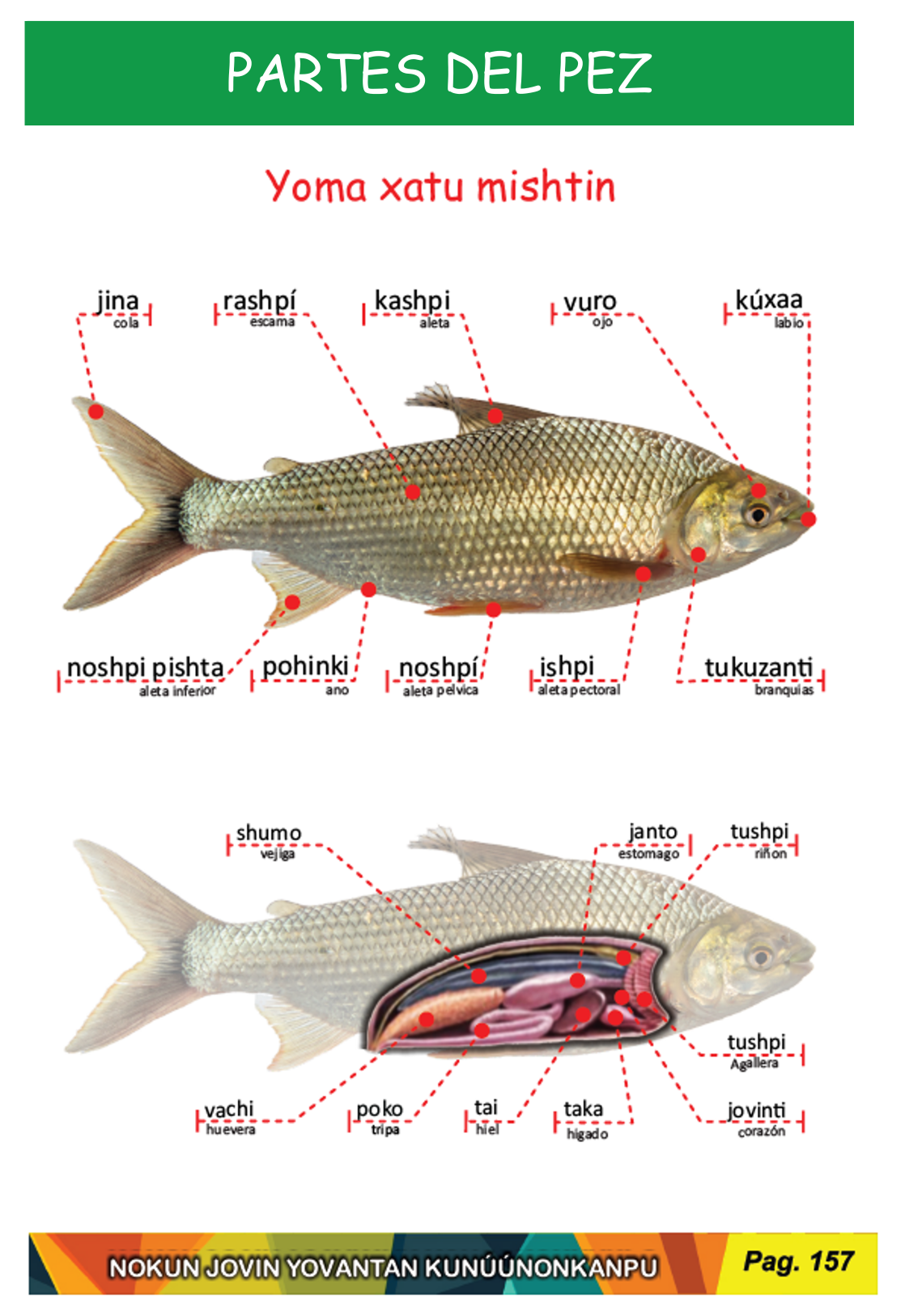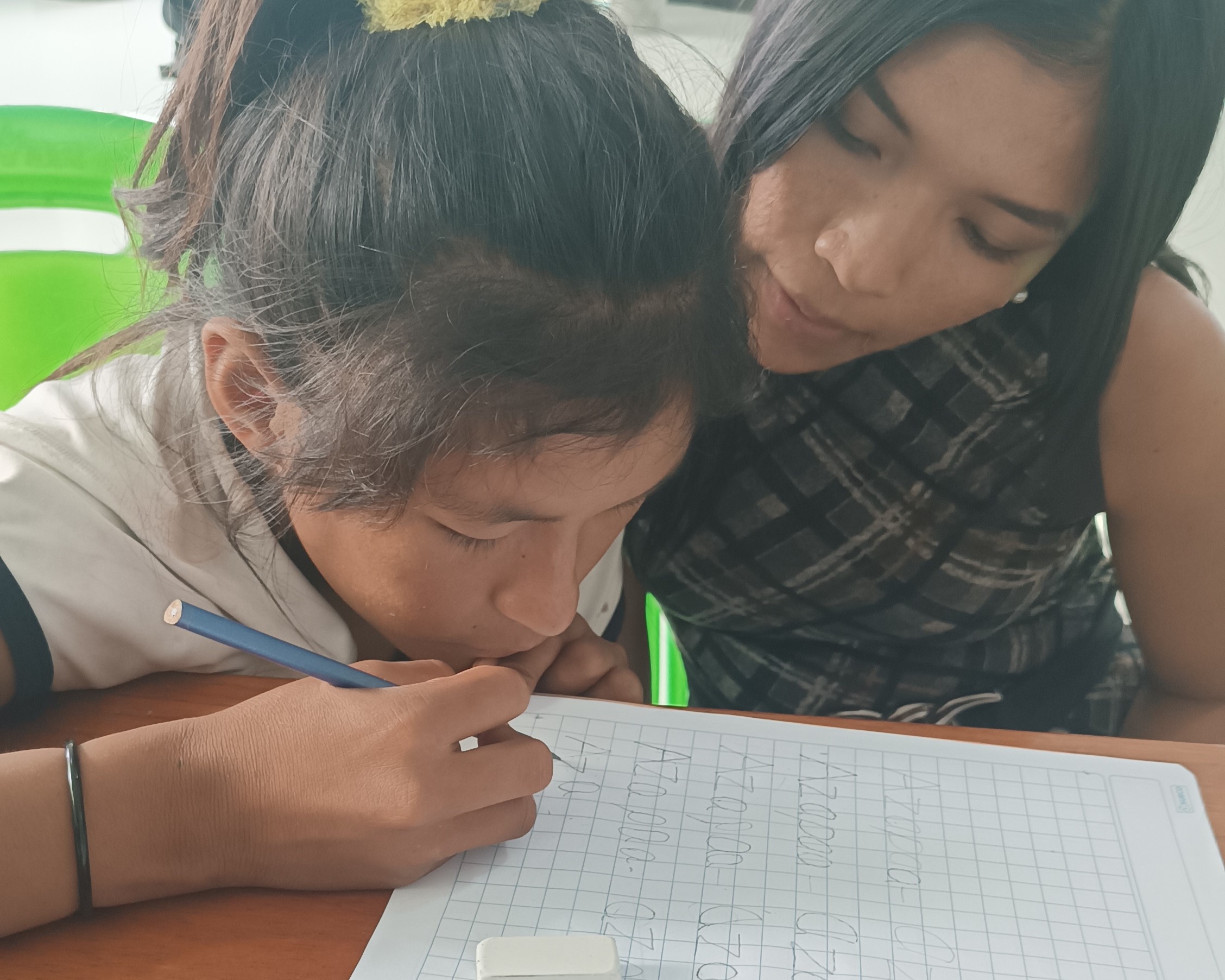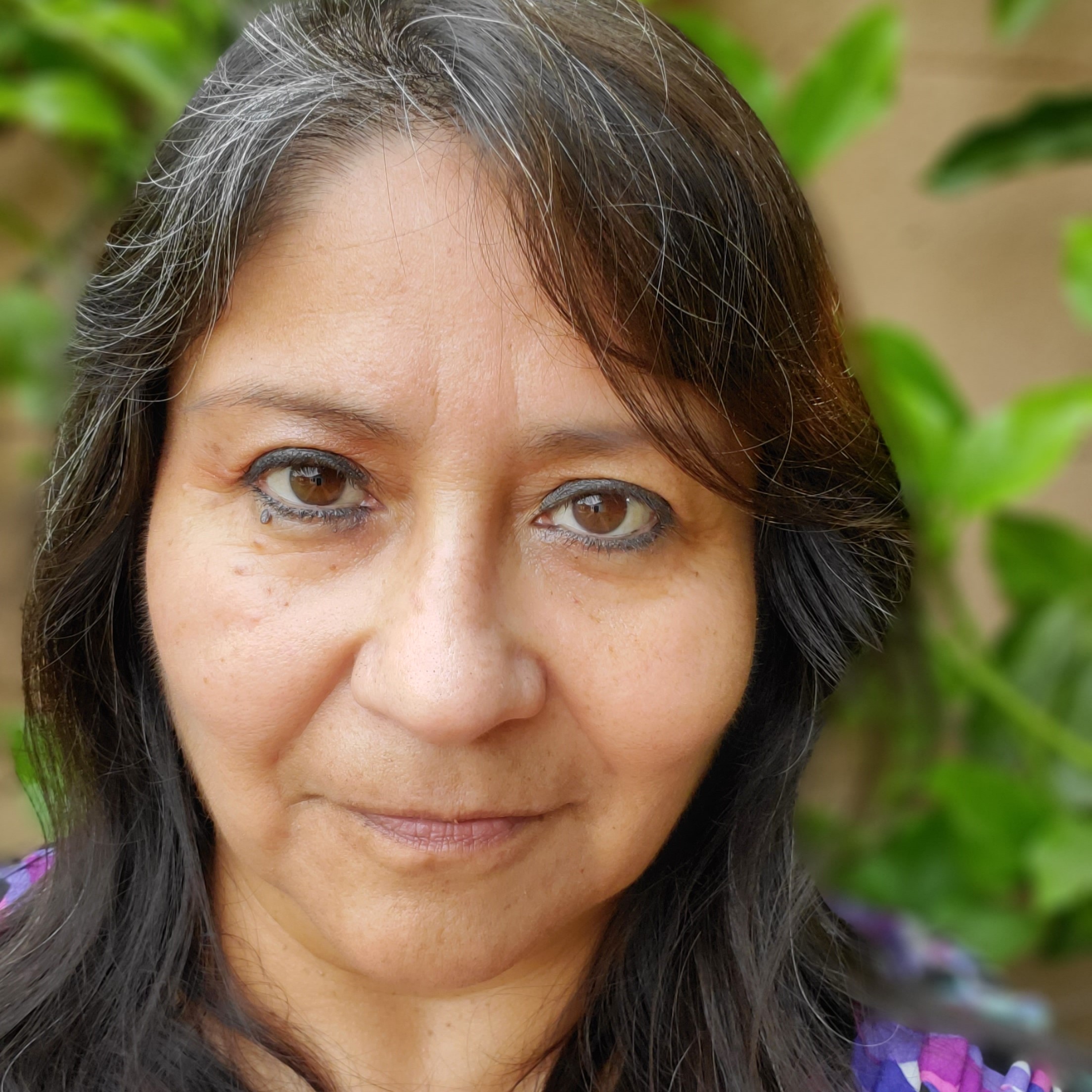Received Sylff fellowship in 1995-1996
Current affiliation: Chapman University
Academic Achievements and Social Engagement Initiatives:
As a Peruvian-American linguist, I have had the privilege of drawing inspiration and knowledge from both the Latin American and English-speaking academic traditions. I completed my undergraduate studies at the Pontifical Catholic University of Peru, where I earned a Bachelor's degree in Spanish Language and Literature, as well as a Diploma in Anthropology. Subsequently, after a few years of professional work among various Indigenous communities, I pursued graduate studies at the University of Oregon in the United States, where I obtained a Master's degree and a Ph.D. in Linguistics. Additionally, I earned a three-year fellowship to conduct research at the Max-Planck Institute for Evolutionary Anthropology in Leipzig, Germany. My doctoral dissertation, titled "Transitivity in Shipibo-Konibo Grammar," received the "Mary R. Haas Award" in 2003, which is presented by the Society for the Study of the Indigenous Languages of the Americas (SSILA) for the best doctoral thesis on an Amerindian language. Presently, I hold the position of Full Professor within the Department of World Languages and Cultures at Chapman University in Southern California.
My research focuses on the description and documentation of native South American languages and the issues that these raise for linguistic theory, typology, and the (pre)history of the Indigenous peoples of the region. I concentrate on two language families from Western Amazonia, Panoan and Kawapanan. Panoan is a linguistic genealogical unit comprising over thirty languages from Brazil, Peru, and Bolivia. In contrast, Kawapanan is composed of only two known languages spoken in Peru. Furthermore, I conduct research on Amazonian Spanish, a scarcely studied Spanish dialect that exhibits numerous unique features.
My commitment to the field of Amazonian Studies has been further recognized as I have been honored with the title of Extraordinary Visiting Professor by the National Intercultural University of the Amazon (UNIA) in Peru. Moreover, I have had the opportunity to contribute to the global academic community by serving as a visiting researcher at prestigious institutions in Europe and Australia. Moreover, my involvement in various interdisciplinary research teams has been instrumental in delving into crucial areas of inquiry, including the exploration of the rich history of Amazonian Indigenous peoples, the intricate dynamics of language contact, and the classification of languages and linguistic families within Western Amazonia. In addition to these academic pursuits, I have led significant documentation projects such as "Collaborative Research: The Kawapanan Project: Building Flexible Data for the Documentation of Shiwilu (jeb) and Shawi (cbt)" and "Computational Tool and Corpora Development in a Language with Complex Clause-marking." These endeavors have been made possible through generous funding from the National Science Foundation of the United States.
My extensive research efforts have yielded a substantial body of work, with the results being disseminated through numerous presentations at professional conferences and publications. These endeavors have frequently involved collaboration with esteemed colleagues, particularly from Latin America, the United States, and Europe. Notably, two recently co-edited books have made significant contributions to the field: "Spanish Diversity in the Amazon: Dialect and Language Contact Perspectives" (Jara, Zariquiey, Valenzuela and Escobar (eds.), Brill, 2023) and "The Grammar of Body Part Expressions: A View from the Americas" (Zariquiey and Valenzuela (eds.), Oxford University Press, 2022).
The results of my scholarly work also encompass numerous articles that have appeared in professional, peer-reviewed journals and edited volumes. Among the recently published and forthcoming works are:
▪ "Non-verbal predication in the Pano languages of Western Amazonia" (to appear in Creissels, Bertinetto and Cucci (eds.), "Non-Verbal Predication: A Typological Survey," De Gruyter Mouton).
▪ "Object-Oriented Switch-Reference in Pano" (to appear in Sarvasy and Aikhenvald (eds.), "Clause-Chaining," Oxford University Press).
▪ "Language Classification in Western Amazonia: Advances in Favor of the Pano-Takana Hypothesis" (published in LIAMES Línguas Indígenas Americanas, 2023).
▪ "Mirativity in Peruvian Amazonian Spanish: An Account of the Discourse Marker Ya Vuelta" (in Jara, Zariquiey, Valenzuela and Escobar (eds.), "Spanish Diversity in the Amazon: Dialect and Language Contact Perspectives," Brill, 2023).
▪ "Untangling the evolution of body-part terminology in Pano: conservative versus innovative traits in body-part lexicalization" (published in Interface Focus, 2023).
▪ "Degrees of Temporal Remoteness in Pano: Contribution to the cross-linguistic study of tense" (published in LIAMES Línguas Indígenas Americanas, 2022).
▪ "Nominal incorporation in Shiwilu (Kawapanan): Nouns, classifiers, and the deceased marker =ku'" (in Storch and Dixon (eds.), "Linguistics as Art, Language as Joy," Brill, 2022).
▪ "Plant and animal body-part terms in Shiwilu grammar: Classification, nominalization, and incorporation" (in Zariquiey and Valenzuela (eds.), "The Grammar of Body-Part Expressions: A View from the Americas," Oxford University Press, 2022).
(For complete references to published articles, please refer to my profile on the Chapman University website: https://www.chapman.edu/our-faculty/pilar-valenzuela)
Collaboration is at the core of my work and extends beyond academia, as I closely collaborate with Indigenous organizations, academic institutions, and government entities in Peru. I am deeply committed to advocating for and actively working towards the preservation of linguistic, cultural, and identity heritage within Peru's Indigenous communities. My dedication encompasses several critical areas, including the documentation and revitalization of endangered languages, the promotion of intercultural bilingual education, and active engagement in ethno-political activism.
For instance, I have played a pivotal role in workshops aimed at establishing standardized orthographies for various Indigenous languages. Additionally, I consistently organize training workshops to equip Indigenous teachers and activists with the skills needed to analyze their native languages and promote literacy development. In collaboration with Indigenous partners and colleagues, we have created bilingual materials with educational and language revitalization objectives. These materials encompass reading primers for elementary schools, comprehensive dictionaries, mobile applications, a pedagogical grammar resource tailored for bilingual teachers, and more. Additionally, I have successfully secured small grants for Shipibo, Amahuaca, and Shiwilu cultural groups, thanks to institutions such as the Endangered Languages Fund and the Peruvian Ministry of Culture. These grants empower the communities to produce a wealth of valuable resources, including videos and books in their respective native languages.
In my involvement with grassroots entities, I serve as an advisor for the 'Interregional Union of the Amahuaca Nation,' which unites all Amahuaca communities in the Ucayali and Madre de Dios regions, and the 'Regional Association of Bilingual Teachers,' which brings together around two hundred Shipibo-Konibo teachers in the Ucayali region. I also serve on the advisory board of a scholarship program, operated by the NGO Share International, which supports Indigenous youth from Inuya River villages in pursuing technical or university education. Finally, to protect cultural diversity and advocate for the linguistic and other rights of Indigenous Peoples, I actively deliver academic and informative talks at institutions such as the Indigenous University Nopoki in Atalaya (Ucayali, Peru), the Intercultural University of the Amazon (UNIA), and universities in Lima.
Bio:
I am Pilar Valenzuela. Having grown up in Peru, a country renowned for its breathtaking natural beauty, remarkable biological and cultural diversity, rich history, and exquisite cuisine, my identity and academic journey have been profoundly influenced. As a linguist, my passion centers around university teaching and the study, preservation, and revitalization of Indigenous Amazonian languages.
I began my professional training at the Pontifical Catholic University of Peru, where I completed my undergraduate studies focusing on linguistics and anthropology. Initially, my goal was to research and promote Quechua, the language of my paternal grandparents. I was hired by the Peruvian Ministry of Education to conduct research in the southern Andes to expand Intercultural Bilingual Education. Unfortunately, the presence of the "Shining Path" terrorist group led to my withdrawal from the Andes. Although I initially hoped to return, terrorism persisted in various parts of Peru for over a decade.
After returning to Lima, I accepted an invitation from the confederation of Amazonian Indigenous peoples' organizations, AIDESEP, and joined their bilingual teachers' certification program, Formabiap, located in the city of Iquitos along the Amazon River. During this period, my first child, Pedro Pablo, was already born and became my companion on my academic journey through the Amazon, the United States, and Germany. Working at Formabiap offered a unique opportunity to connect with aspiring young teachers from diverse Indigenous communities. I was particularly tasked with working closely with the Shipibo-Konibo students. Together, we embarked on journeys to various Indigenous villages along the Ucayali River, delving deep into their captivating culture. In the process, they bestowed upon me a janekon or “true name” in their language, Metsá Rama.
During my four-year tenure in this educational program, I realized that my professional training was insufficient to effectively address the challenges and opportunities posed by Peru's rich linguistic and cultural diversity. As a result, I made the resolute decision to pursue graduate studies in Linguistics which necessarily implied leaving my home country. I opted for the University of Oregon in the United States due to its specialized focus on the description of understudied languages. With the generous support of various institutions, including the Inter-American Foundation in the United States and the Sasakawa Foundation in Japan, I completed my master's degree and decided to pursue a Ph.D. After achieving ABD (all but dissertation) status, I received a three-year fellowship from the Max-Planck Institute for Evolutionary Anthropology in Leipzig, Germany. During my time there, I conducted research that formed the basis of my doctoral dissertation, titled 'Transitivity in Shipibo-Konibo Grammar.' This work was honored with the prestigious award for the best dissertation in an Amerindian language, presented by the Society for the Study of the Indigenous Languages of the Americas (SSILA). It was during my Ph.D. journey that my second child, my daughter Arabela Urpi, was born.
Following the attainment of my Ph.D., I joined the faculty at Chapman University, a distinguished private institution in Southern California, where I continue to work to this day. Currently, I hold the rank of Full Professor in the Department of World Languages and Cultures. I am deeply appreciative of my colleagues, as I could not have asked for better co-workers who share in my joy for each academic milestone. I am also grateful to Chapman University for their unwavering support of my research endeavors. In Southern California, I not only found a fulfilling job, but it is also where I encountered my beloved husband, Ken.
While I am passionate about studying Amazonian Indigenous languages, I am equally dedicated to supporting the communities that speak them. I strive to collaborate with them as they struggle to protect their ancestral territories, preserve their languages, cultures and distinct identities, and ensure that their children gain access to high-quality, culturally relevant education. Choosing Linguistics has proven to be the right decision for me. It has allowed me to align my research interests with my deep political commitment, creating a powerful synergy in my academic journey. Through my work, I have had the privilege of forming lasting friendships with remarkable individuals in Indigenous communities and delving into their diverse cultures. These experiences have been a source of immense personal growth and fulfillment.
My life has also been profoundly enriched by the privilege of living and working across three continents, immersing myself in diverse languages and worldviews. Today, I divide my time between Southern California and Peru, fortunate to have two wonderful places I can call home. On a more personal note, I am happily married and take great pride in being the mother of two exceptional young adults. Pedro Pablo has found his life partner and works as a programmer, while Arabela Urpi is pursuing a B.S. in molecular biology at a university in China. In our family, we are both independent and close-knit, openly expressing our affection and never hesitating to say 'I love you.' Last but not least, our family includes a loving dog and two charmingly sophisticated cats that bring joy to our lives; they are all cherished members of our household.
Summary of Support Program Activities:
Since 2018, I have been leading a project aimed at documenting the Amahuaca language. In April 2023, we successfully orchestrated an event that brought together members from all Amahuaca villages. A significant outcome of this gathering was the establishment of an Amahuaca organization focused on safeguarding their rights as Indigenous people. Among the critical issues addressed by this organization was the urgent need for an elementary school for the Amahuaca people who hold limited contact with the envolving society, as they have been denied educational opportunities and lack basic literacy skills.
Motivated by this pressing concern, I resolved to address the challenge. I engaged key Amahuaca figures and proposed a collaborative effort to devise a school model tailored specifically for the Amahuaca in initial contact. The central objective of this model is to preserve their language and culture while thoughtfully integrating pertinent Western knowledge, thereby preparing them for meaningful and equitable engagement with the broader society.
The project will be conducted in early 2024.
Faculty profile: https://www.chapman.edu/our-faculty/pilar-valenzuela



Comments
SSC
Loved reading this effort under SLI which has potential for delivering transformative change and has replicability in any national contexts including India. -Joyashree RoySeptember 26, 2024.-
Fellow
This is very innovative and provides an adoptable ideology for engagements in rural communities. Well done! I provide financial literacy education in the rural communities, presenting these principles in the indigenous language of Southwest Nigeria. The success of my research efforts is hinged on respectful navigation of the age-long beliefs and cultural practices that perpetuate poverty. I must invite research subjects to decide on how they'd rather proceed in the light of the new knowledge presented without dismissing these cultural practices. This is one reason I could easily see and appreciate the tremendous work you have done here. Well done indeed! I hope you attract (and quickly, too) the funding you justifiably need to proceed with these efforts.